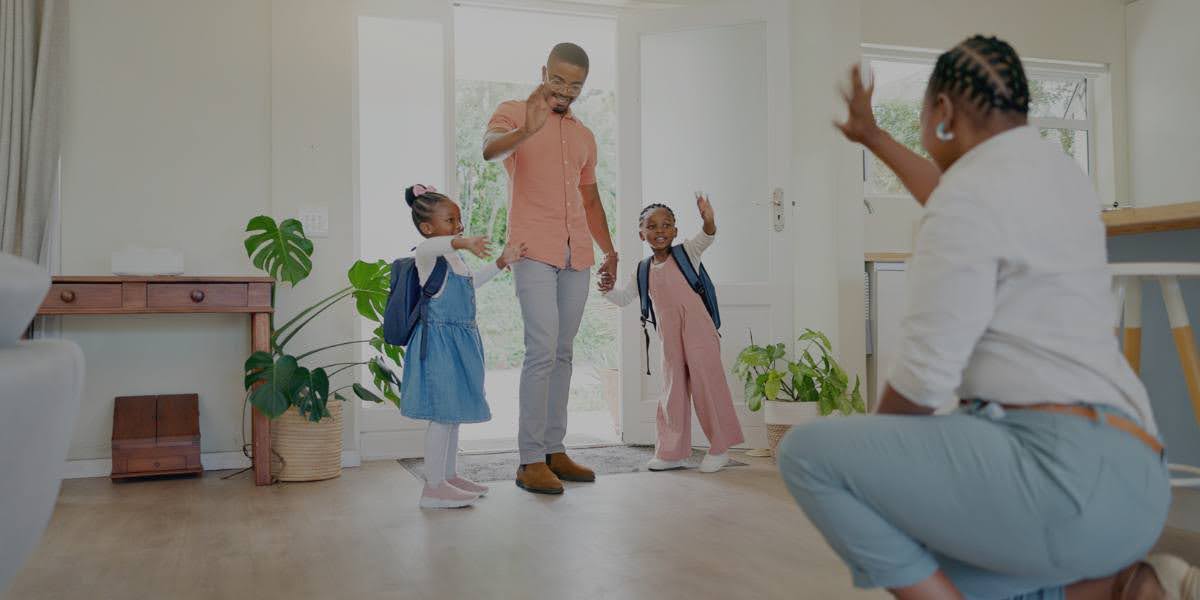Going through a divorce is never easy—especially when kids are involved. One of the biggest concerns for parents is making sure they still get quality time with their children. That’s where visitation rights NY come in.
If you’re a parent in New York trying to stay involved in your child’s life after divorce, this guide will walk you through what visitation rights are, how they work, and how you can make sure your parenting time is fair and protected.
What Are Visitation Rights?
In New York, visitation rights allow the parent who doesn’t have full custody to spend time with their child. It’s the legal way to make sure that even if your child doesn’t live with you most of the time, you still get regular time together.
Visitation rights can also apply to others—like grandparents or siblings—if the court believes it’s good for the child.
There are different types of visitation, depending on what’s best for the child and the family situation. The goal is to make sure the child has a strong relationship with both parents whenever possible.
How Do Visitation Rights Work in New York?
If you’re going through a divorce or custody situation in New York and you don’t have primary custody of your child, you still have the right to see them. This is where visitation rights NY come in.
Visitation in New York is handled through Family Court. That means if you want to spend time with your child, but don’t have physical custody, you’ll need to file a petition for visitation. This is basically a legal request asking the court to set up a schedule that allows you to see your child regularly.
What Happens After You File?
After you file your petition, the court will schedule a hearing. At the hearing, a judge will look at your situation and decide what kind of parenting time makes the most sense for your family.
This decision isn’t just about what each parent wants. The court’s number one priority is always the best interests of the child. That means the judge will carefully look at all the facts and choose an arrangement that keeps the child safe, happy, and emotionally supported.
What Does “Best Interests of the Child” Mean?
This phrase comes up a lot in family law. It means the court is going to make decisions based on what’s truly best for your child—not what’s easiest or most convenient for the parents.
Here are some of the main things a judge will consider when deciding on visitation rights NY:
- How each parent cares for the child – Do they provide a safe home? Do they help with school, meals, and daily routines?
- Whether the child feels safe and comfortable – If the child is afraid or uncomfortable around one parent, that matters to the court.
- Any history of abuse or neglect – The court takes safety very seriously. If there’s any past abuse, drug use, or neglect, it could affect how visitation is handled.
- Each parent’s mental and physical health – A parent who’s healthy and able to care for the child is more likely to be granted regular visitation.
- The child’s wishes – If the child is old enough and mature enough, the court may consider what they want. This doesn’t mean the child gets to choose entirely, but their voice is taken into account.
The judge will use all of this information to create a plan that gives the child the chance to have a positive and ongoing relationship with both parents whenever it’s safe and healthy to do so.
Do I Automatically Get Visitation?
Not always. While courts usually want both parents involved in a child’s life, they don’t automatically grant visitation. You have to go through the process of asking for it. And the court has to feel confident that spending time with you is in your child’s best interest.
This is why it’s important to show that you’re reliable, that you care about your child’s well-being, and that you’re willing to follow whatever schedule the court sets.
What If the Other Parent and I Agree on Visitation?
That’s great news! If you and your co-parent can agree on a parenting schedule, you can present it to the judge. Most courts are happy to approve a plan you both agree on, as long as it seems fair and safe for the child.
Even with an agreement, it’s still important to get it in writing and approved by the court. That way, it becomes a legal order—and both parents are required to follow it.
What If We Can’t Agree?
If you and your co-parent can’t come to an agreement, the court will step in and make a decision for you. In some cases, the judge may also assign a law guardian or Attorney for the Child—a lawyer who represents your child’s interests during the case.
Types of Visitation in New York
Every family is different, so the court has several options when it comes to setting up visitation. Here are the most common types of visitation rights New York parents may be given:
1. Set Schedule (Fixed Visitation)
This is the most common type of visitation order. The court gives you a specific schedule that everyone has to follow. For example:
- Every other weekend
- One or two evenings a week
- Alternating holidays and school vacations
This kind of schedule gives both parents and the child a clear routine, which can help reduce conflict.
Common question:
Can I ask for more time if my schedule changes later?
Yes. If your situation changes, like getting a new job with different hours, you can ask the court to modify the schedule.
2. Flexible Schedule (Reasonable Visitation)
This type of visitation order doesn’t come with a strict schedule. Instead, it leaves it up to the parents to work out the details.
This only works if:
- You and your co-parent get along
- You both communicate well
- You’re both willing to be flexible
This option can work well for parents who trust each other and can put the child’s needs first without needing the court to spell everything out.
Common question:
What if we start to disagree about what’s “reasonable”?
If disagreements start to happen, one parent can go back to court and ask for a fixed schedule instead.
3. Supervised Visitation
If the court is worried about a child’s safety—maybe because of a past problem like drug use, mental health concerns, or domestic violence—it may order supervised visitation.
This means you can still see your child, but another adult must be present during visits. That might be:
- A trusted relative
- A court-approved supervisor
- A professional visitation monitor
The goal is to allow the child to have a relationship with the parent while making sure they feel safe.
Common question:
How long does supervised visitation last?
It depends. If the court sees that you’re making progress—like going to counseling or staying sober—they may change the order to allow unsupervised visits later.
4. Therapeutic Visitation
In some cases, especially when a parent and child have been separated for a long time or had a strained relationship, the court may order therapeutic visitation. These visits happen with a mental health professional present.
The therapist helps both the parent and child work through their feelings and rebuild trust. Over time, these visits may lead to more regular parenting time once the relationship has improved.
Common question:
Do I have to keep seeing a therapist with my child forever?
No. The goal is to help your relationship improve. Once things are going well, the court may allow regular visits without the therapist.
Who Can Ask for Visitation?
When people think about visitation rights New York, they often imagine one parent asking the court for time with their child. And while it’s true that the non-custodial parent (the parent the child doesn’t live with most of the time) is usually the one asking for visitation, they’re not the only ones who can ask.
New York law allows certain other family members to request visitation if they have a strong and meaningful relationship with the child. Here’s who can ask:
1. Non-Custodial Parents
This is the most common situation. If one parent has custody, the other parent can file a petition for visitation to make sure they get regular time with their child.
2. Grandparents
In some cases, grandparents can ask for visitation—especially if one parent has passed away or if there’s been a sudden disruption in the family (like a divorce). The court will look at whether the grandparents were already involved in the child’s life and if ongoing visits would be in the child’s best interest.
Common question:
Can grandparents ask for visitation even if both parents are alive and together?
It depends. If the parents are refusing contact and the grandparents can prove that they had a strong relationship with the child, the court might allow it—but this is less common.
3. Siblings
Older brothers or sisters who are separated from their younger siblings—maybe because they live with different parents—can also ask the court for visitation rights in New York. Courts understand how important sibling relationships are, especially during big family changes like divorce or separation.
4. Step-Parents (in special cases)
Step-parents may be able to ask for visitation, especially if they’ve played a big role in raising the child. For example, if a child was raised by a step-parent for many years, and then the relationship ends, the court might allow visits to continue—again, only if it’s in the child’s best interest.
What Happens If the Other Parent Doesn’t Follow the Visitation Order?
Let’s say you’ve gone through all the right steps. You’ve filed your petition, gone to court, and received a court-ordered visitation schedule. But now the other parent isn’t sticking to it.
Maybe they cancel your visits without a good reason. Maybe they refuse to let your child come see you at all. What can you do?
File a Violation Petition
If the other parent isn’t following the court order, you can go back to Family Court and file what’s called a Violation Petition. This tells the judge that the other parent is breaking the agreement, and you need help enforcing it.
Here’s what the court might do to fix things:
- Give you make-up time – You could get extra time with your child to make up for what you missed.
- Change the custody order – If one parent keeps ignoring the rules, the court may decide to change who has custody or how the schedule works.
- Hold the other parent in contempt of court – This is serious. It means the court believes the parent is purposely breaking the law, and they could face penalties like fines—or in extreme cases, jail time.
Important reminder:
Whatever you do, don’t take matters into your own hands. That means you shouldn’t skip child support, deny the other parent their visitation, or act out of anger. Doing that could actually hurt your case. It’s always better to go through the proper legal process.
Can You Change a Visitation Plan?
Yes! Life changes—and sometimes, the original visitation plan doesn’t work anymore. Maybe you get a new job with different hours. Maybe your child starts school in a new area. Or maybe your relationship with your child has improved, and you want to request more time together.
In New York, you can ask the court to modify your visitation order. To do this, you’ll need to prove that there’s been a significant change in circumstances since the original order was made.
Here are a few examples of valid changes:
- A new job or work schedule
- A move to a different city or neighborhood
- Your child’s needs or activities have changed
- One parent is no longer following the agreement
- There’s been a positive improvement in your relationship with your child
Common question:
How often can I ask for a change?
There’s no limit, but you need to have a real reason. The court won’t approve changes just because you want something different. You have to show that the change is necessary and in the child’s best interest.
How to Protect Your Visitation Rights NY
If you want to make sure you keep your parenting time, it’s important to stay consistent and responsible. Courts like to see that you’re dependable and putting your child first. Here are some smart ways to protect your visitation rights NY:
1. Keep Records
Write down every visit, including dates, times, and anything important that happens—like if your child doesn’t show up or the other parent cancels. Having a record helps if there’s ever a disagreement later.
Tip:
Use a notebook, calendar, or even a parenting app to track everything.
2. Stay Calm and Respectful
Even if your co-parent is difficult, try to stay calm and communicate clearly. Getting angry or lashing out can hurt your case—and make things harder for your child.
3. Stick to the Plan
Follow the court order exactly. Show up on time. Be prepared. Keeping your promises builds trust—with your child, your co-parent, and the court.
4. Work with a Family Law Attorney
Having a lawyer by your side makes a big difference. They’ll help you understand your rights, file the right paperwork, and speak for you in court. An experienced attorney knows how to present your case in the best possible light.
Common question:
What if I can’t afford a lawyer?
There may be free or low-cost legal services in your area. You can also speak with the Family Court to see if legal aid is available, or if you qualify for court-appointed assistance.
Why Legal Help Makes a Big Difference
Trying to handle visitation issues on your own can be overwhelming—especially when emotions are high. That’s where we come in. At Krasner Law, we’ve helped families across New York figure out parenting time that works and keeps kids at the center of every decision.
Whether you’re going through a divorce, trying to enforce an existing order, or need to make changes, our team is here to guide you. We understand how important this is, and we’ll fight to make sure your visitation rights NY are protected.
Take the First Step Toward Fair Parenting Time
If you want to protect your time with your child, understanding visitation rights NY is the first step. At Krasner Law, we’re here to help you through the process—whether you’re starting from scratch or dealing with a tough situation.
Click here to learn more about our custody and visitation services or contact us today to schedule a consultation. Let’s work together to create a plan that keeps your child’s well-being front and center—and helps you stay a big part of their life.







